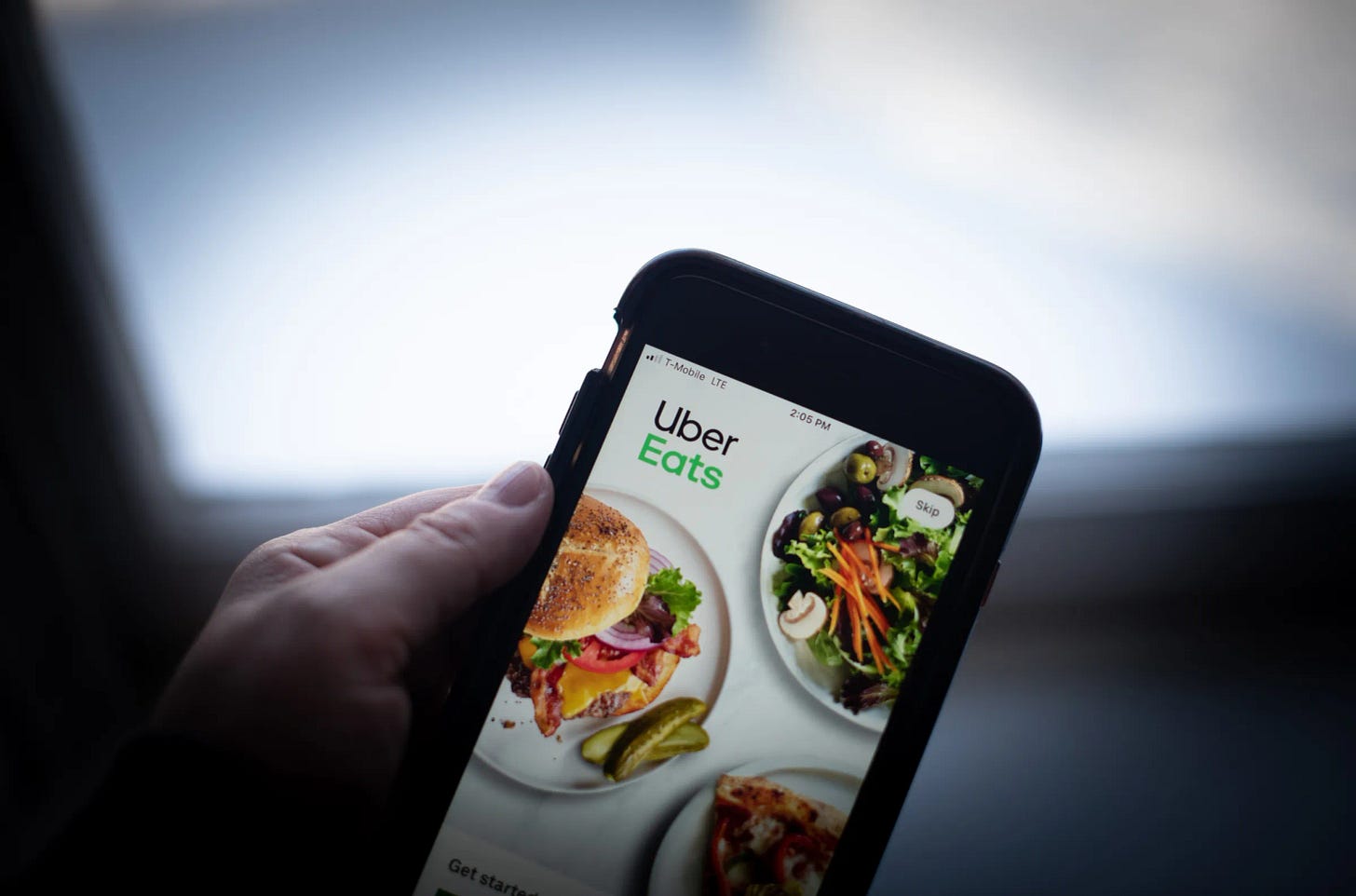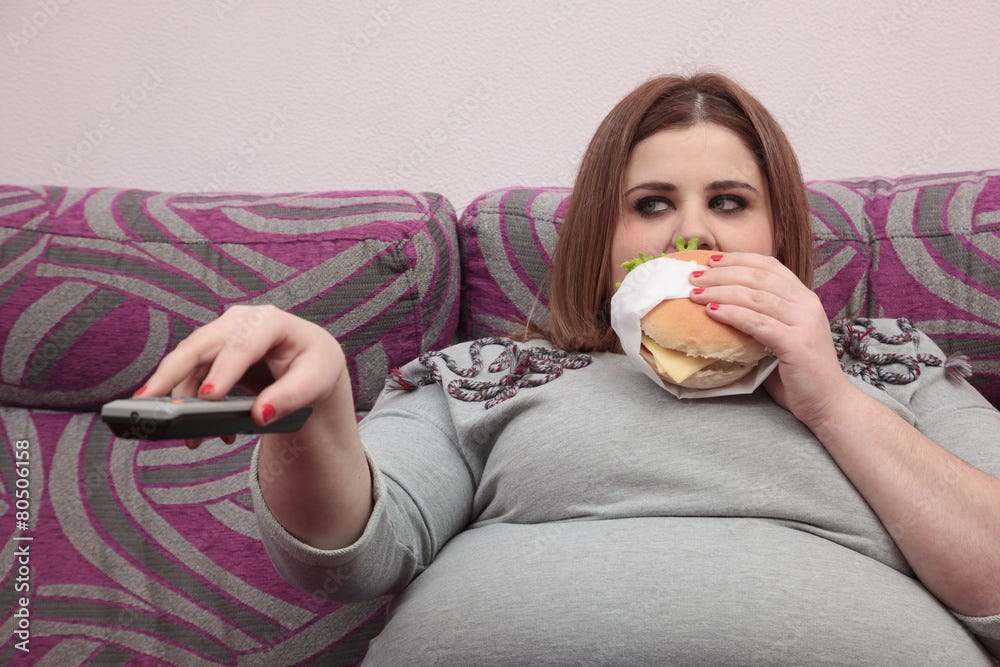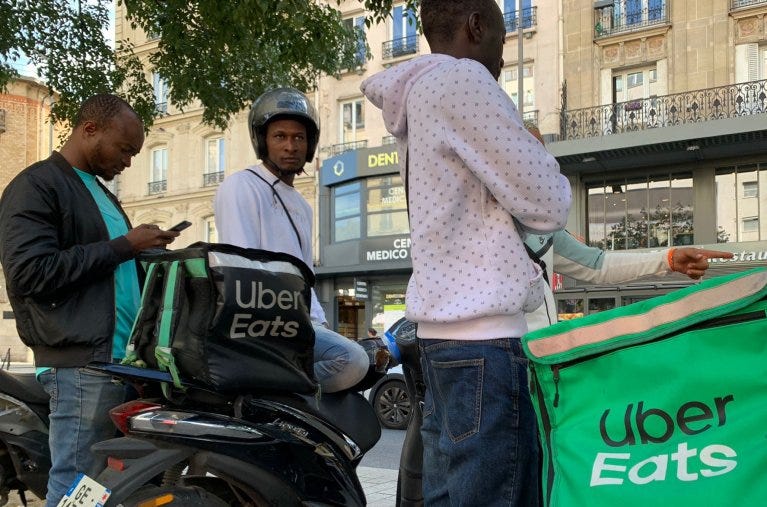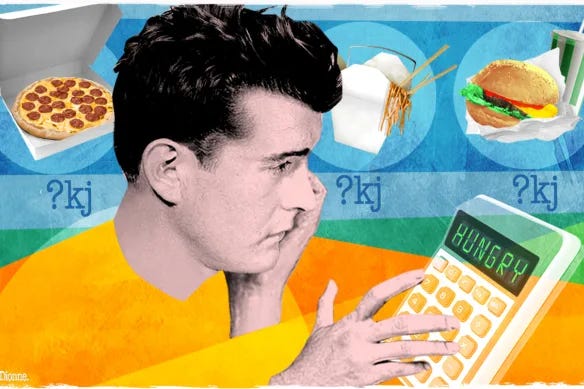The Delivery of Nietzsche's Last Man
What the rise of online food delivery services means for society.
In his philosophical novel Thus Spoke Zarathustra, Friedrich Nietzsche tells the story of Zarathustra, a man who, after enduring ten years of exile in the mountains, returns to civilization to evangelize his philosophy which years of hardship had revealed to him. Zarathustra preaches that the goal of man ought to be to overcome his worldly limitations and, through his conquest of hardship, advance to a higher state of being which he called the Superman (also known as the Übermensch in the original German). Zarathustra warns of the antithesis of the Superman, which he called the Last Man. In contrast to the Superman, the Last Man does not seek triumph, but comfort. He has forgone the strive for greatness in exchange for a secure and comfortable but ultimately meaningless life.
When Zarathustra attempts to evangelize his philosophy of the Superman to the masses, he is surprised to find that they rebuff him and deride the idea of embracing struggle and hardship in pursuit of higher ideals. Instead, contrary to Zarathustra’s intentions, they are enamored with the concept of the Last Man and demand to know how such a state of being can be attained. From then onwards, Zarathustra decides to preach his philosophy only to a select few disciples, seeing the masses as incapable of ever aspiring to a greater form of existence.
In this parable, Nietzsche illustrates an unfortunate truth about human nature. The existence of the Superman is clearly superior to that of the Last Man and would most certainly yield a more fulfilling life. Why then do the masses reject the ideal of the Superman in favor of the Last Man? The unfortunate truth about mankind is that we are inherently lazy. With the exception of a select few, most won’t pursue the path which brings about fulfillment, but the path of least resistance. Man still desires a greater degree of self-actualization, but if he isn’t forced to muster the effort in order to attain that, he often will not even try.
This reality of human nature has made it such that it is questionable whether the advanced technological state of the modern world is a blessing or a curse. The logic of technological advancement is not to bring about a more fulfilling life, but an easier one. It’s undeniable that we are living an easier life than in centuries past, but the question remains whether easier necessarily means better. Nowhere is this contradiction better exemplified in my observation than in advent of Uber Eats or similar food delivery services. Food delivery has existed for decades but used to be limited to the few fast-food restaurants which employed their own deliverymen. In 2014, the ride sharing company Uber launched a ground-breaking new third-party online food delivery service called Uber Eats which made it possible for almost any restaurant to offer delivery as an option.
Uber Eats operates in 45 different countries and over 6000 cities. Identical services are usually offered by local tech companies in countries not served by Uber. The popularity of online food delivery services skyrocketed in 2020 with the outbreak of the COVID-19 pandemic during which traditional restaurants were closed, and people were confined to their homes for extended periods of time. Global revenue generated by online food delivery services jumped from $90 billion in 2018 to $294 billion in 2021, largely as a result of COVID policies. Despite the end of the pandemic, these food delivery services have continued to rise in popularity, making them a mainstay of modern life with global revenue projected to exceed $466 billion by 2036.
It’s undeniable that such services are in high demand. Why wouldn’t they be? The ability to have almost any meal imaginable delivered to you in the comfort of your home ready-to-eat at the touch of a button on your smartphone screen is a whole new level of convenience which past generation couldn’t have even dreamed of. But referring back to the question which Nietzsche grappled with in Thus Spoke Zarathustra, does more ease, comfort, and convenience necessarily make life better?
What are the implications of this revolution in food consumption habits in recent years? First and foremost, the innovation of food delivery apps threatens to accelerate the decline in overall physical health. Experts have warned that this change in dining habits threatens to exacerbate the already existing obesity epidemic. Such technology encourages overeating at an increased frequency by making calorie-dense restaurant-quality meals easily accessible without the need to put in the effort of cooking or going out to a restaurant. Furthermore, such services facilitate a sedentary lifestyle by eliminating the need to leave one’s home in order to eat, meaning users will inevitably get less physical exercise.
Beyond simply the deleterious effects on health, the rise in popularity of online food delivery services threatens to remove the social elements of dining, making it a much more solitary experience. Restaurants not only offer a culinary experience, but also a social one. Going out to eat is typically done with friends or family and part of the appeal is the social environment restaurants create. Cooking is an extremely useful skill, plays an important part in family life, and can be used to foster friendships and relationships. Online food delivery apps cut out all the aspects of one’s social life associated with dining, making it simply about the consumption and nothing more. It’s also worth noting that these companies are known for employing cheap migrant labour, furthering the demographic third-worldification of Western countries.
Note: Since publishing the essay, I have learned that DoorDash (an Uber Eats competitor) is now offering customers the ability to purchase food deliveries using an “eat now, pay later” credit program. Not content with being destructive enough, now these services will offer users the ability to eat themselves into not only into obesity and loneliness, but also into debt if they don’t have the cash on hand to fuel their burrito addiction.
The irony of the brand name Uber is that their delivery app is delivering the opposite of Nietzsche’s Übermensch. In the modern world, there is no better embodiment of Nietzsche’s Last Man than the Uber Eats customer. He is too lazy to cook for himself, too apathetic to care about his physical health, and too atomized to go out with friends or family. So, he sits at home alone wallowing in his loneliness, eating fattening slop delivered to him by a foreigner, brought into his country to take his place as a consumer who will live off even lower quality slop.
It goes without saying that such an existence is antithetical to a happy, healthy, and fulfilling life. Then why is such a lifestyle only becoming more and more prevalent in the modern day? It’s not because it makes life happier, but because it makes life easier. The ability to click on a flashy icon on a smartphone screen to order a gargantuan portion of fried Thai noodles drenched in sugar-laced sauce delivered straight to one’s door by a Bangladeshi on a scooter significantly reduces the effort dining requires. However, it deprives the practice of the spiritual affirmation which it has given man throughout human history.
We can see the harmful effects of society’s shift away from the personal towards the digital in other aspects of modern life too. A study into dating trends found that many single men are now approaching women far less frequently, if ever. This is especially true of men in the younger age brackets. This study found the 45% of men between 18 and 25 have never once approached a woman in person in their lives. It’s no coincidence that this generation has had access to Tinder and other such dating apps for their entire adult lives. It goes without saying that sitting at home futilely swiping right though countless selfies is less likely to land a guy a date than approaching a woman in the real world, but the latter actually requires effort and a little courage. Likewise with these food delivery apps, if people are given the ability to be lazy, a sizeable percentage choose to do so, even if it is less likely to yield positive results.
Now it must be said that making a home-cooked meal or going out for dinner and drinks with friends does not make one the Nietzschean ideal of the Superman. In fact, being able to select produce from around the world at a supermarket and bring it home to prepare on an electric stove is a level of comfort and convenience far beyond what anyone in Nietzsche’s time would’ve known. Furthermore, effort alone doesn’t beget self-actualization. I doubt spending two hours handwashing one’s clothes would be a more self-actualizing experience than having a washing machine do it automatically.
I’m no luddite. I reject the idea that the Industrial Revolution and its consequences have been a disaster for the human race, evidenced by the fact that I’m using a computer and the internet to convey this very message. The issue is not with technological advancement in and of itself, but the logic it has followed in the modern world. Rather than the goal of simply increasing efficiency and reducing the amount of human effort put into tasks, the question should be asked as to whether or not new technology enables us to live happier, healthier, and more fulfilling lives. There is no better exemplification that the two are often in contradiction with each other than the recent innovation of Uber Eats.
Associating such mundane tasks as preparing oven-roasted chicken for a family dinner or going to a steakhouse with friends on a Friday evening with Nietzsche’s lofty ideal of the Superman may be a little overdramatic. I have some criticism of Nietzsche’s philosophy beyond the scope of this essay, but the practical wisdom which can be derived from his writings here is that anything which makes existence worthwhile requires effort. Man’s imperfect nature makes it such that we will forgo any amount of effort if given the ability, but in doing so, we often rob ourselves of the self-actualization attained from overcoming. By resisting the ever-present temptation of laziness offered to us the modern world, one might not rise to the higher state of being of the Übermensch, but one can rise above the lowly state of being of the atomized blubbery biomass that is the Uber Eats Mensch.











Uber has proven to be a civilizational syphilis.
Excellent writing Thankyou. Have also never used a food delivery app in my life and never will. Please could someone explain the point of food delivery apps to me? When you live in a city? When you have restaurants / take aways within easy walking distance?
If you don't want to cook just have some rice or pasta to hand along with some ready made sauces. How difficult can it be?
Managing a kitchen having meals in the freezer / provisions ready for the occasions you don't have time / don't want to cook is basic adult competence i.e independent living.